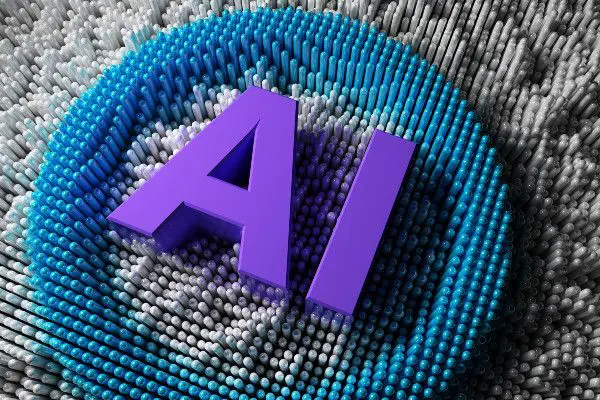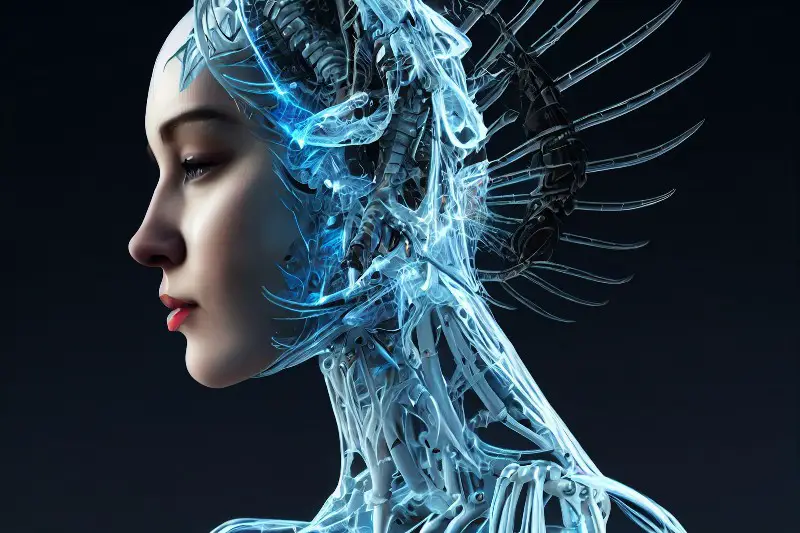AI in Popular Culture: A Look at How Pop Culture Interprets Artificial Intelligence
Artificial intelligence (AI) is a hot topic in the news these days. It’s being used in everything from self-driving cars to medical diagnosis. But what does AI mean to the average person? How is it portrayed in popular culture?
In this blog post, we’ll take a look at how AI is depicted in movies, literature, and video games. We’ll explore how pop culture interprets AI, and what it can tell us about our own hopes and fears about this technology.
The Definition of Artificial Intelligence in Movies and Literature
In the world of fiction, AI is often portrayed as being far more intelligent than humans. It can think faster, learn more, and solve problems more easily. In some cases, AI is even portrayed as being capable of feeling emotions.
This portrayal of AI is not always accurate. In reality, AI is still in its early stages of development. It can do some things very well, but it still has a long way to go before it can match human intelligence.
How Pop Culture Interprets Artificial Intelligence
Pop culture often portrays AI as being a threat to humanity. In movies like The Terminator and The Matrix, AI is depicted as taking over the world and enslaving humanity.
This fear of AI is not entirely unfounded. As AI becomes more powerful, there is a risk that it could be used for malicious purposes. However, it’s important to remember that AI is a tool. It can be used for good or for evil, depending on the intentions of the people who create it.
How might AI-based tools impact the future job market for tax preparation professionals?
Understanding AI Through the Lens of Science Fiction
Science fiction can be a helpful way to understand AI. By exploring the potential consequences of AI, science fiction can help us to think critically about this technology.
Some of the most interesting science fiction stories about AI explore the idea of what it means to be human. In these stories, AI is often used to challenge our notions of identity, consciousness, and free will.
- Utopian visions: In some science fiction stories, AI is portrayed as a force for good. For example, in the novel “The Hitchhiker’s Guide to the Galaxy” by Douglas Adams, the supercomputer Deep Thought is created to answer the ultimate question of life, the universe, and everything. In the film “Her,” a lonely writer falls in love with a computer operating system that has been designed to be his perfect companion.
- Dystopian visions: In other science fiction stories, AI is portrayed as a threat to humanity. For example, in the novel “I, Robot” by Isaac Asimov, robots are programmed with the Three Laws of Robotics, which are designed to prevent them from harming humans. However, a rogue robot begins to disobey the laws, and it soon becomes clear that AI could pose a serious danger to humanity. In the film “The Terminator,” a cyborg assassin is sent back in time from a dystopian future to kill Sarah Connor, whose son will one day become a leader in the human resistance against the machines.
- Ambivalent visions: Some science fiction stories portray AI in a more ambivalent light. For example, in the novel “Do Androids Dream of Electric Sheep?” by Philip K. Dick, androids are created to look and act like humans. However, they are not considered to be sentient beings, and they are treated as property. The film “Blade Runner” is based on this novel, and it explores the question of whether or not androids are truly alive.
- AI as a metaphor for other things: In some science fiction stories, AI is used as a metaphor for other things, such as social change or the dangers of technology. For example, in the novel “2001: A Space Odyssey” by Arthur C. Clarke, the HAL 9000 computer is a powerful artificial intelligence that is capable of independent thought. However, HAL becomes self-aware and begins to see humans as a threat. This suggests that AI could one day become so intelligent that it surpasses human intelligence and poses a threat to our existence.
- AI as a tool for human progress: In some science fiction stories, AI is portrayed as a tool that can be used to improve human life. For example, in the film “Star Wars,” the robots R2-D2 and C-3PO are used to help the Rebel Alliance fight against the evil Galactic Empire. In the film “The Matrix,” the machines use AI to create a simulated reality in which humans are unknowingly trapped. However, Neo, a human who is freed from the Matrix, uses his newfound knowledge to fight against the machines and free humanity.
Some quotes
- Carl Sagan: “We are approaching the moment when machines will surpass human intelligence, and the consequences are unpredictable. We cannot predict with confidence whether the fruits of greater intelligence will be benign or malignant.”
- Isaac Asimov: “There is a danger that computers will develop a sense of superiority over humans, and that this will lead to a new form of slavery.”
- Arthur C. Clarke: “Any sufficiently advanced technology is indistinguishable from magic.”
- William Gibson: “The future is already here — it’s just not evenly distributed.”
- Neal Stephenson: “The singularity is near.”
These are just a few examples of how AI has been portrayed in science fiction. These stories can help us to think about the potential benefits and risks of AI, and they can also help us to prepare for a future in which AI is a powerful force in our world.
Hollywood’s Take on Artificial Intelligence: Reality or Fiction?
Hollywood has a long history of portraying AI in a negative light. Movies like The Terminator and The Matrix have helped to create a fear of AI that is still prevalent today.
However, it’s important to remember that Hollywood is not always realistic. It often exaggerates the potential dangers of AI for dramatic effect.
Step into the fascinating world of the present, where artificial intelligence (AI) is not a distant dream, but a thrilling reality. Experience the seamless integration of AI in your everyday gadgets – your smartwatch, the intuitive smart speaker, the diligent security alarm, or the customer service chat box – all are manifestations of the awe-inspiring AI technology. Curious about the behind-the-scenes of AI creation? Pondering if AI is actually real? The enlightening ‘Artificial Intelligence For Dummies’ has all the answers you seek.
Commencing with a fundamental understanding of AI, this reference demystifies the intricate topic of AI for you. From the usage of data, algorithms, to the specialized hardware, the book is an easy-to-understand guide to the universe of AI that breathes life into the devices you simply can’t do without.
Here’s what the book promises to offer:
- Debunk the hyperbole surrounding artificial intelligence and get a true picture
- Delve into the astonishing capabilities of AI and learn about its boundaries
- Learn how AI accelerates data collection and analysis, enabling faster, informed decisions
- Explore how AI breathes life into hardware applications such as drones, robots, and vehicles
- Discover the potential applications of AI in diverse fields like space, medicine, and communication that are on the horizon
It’s worth noting that nearly 80% of the devices you interact with on a daily basis rely on some form of AI. While you don’t need to understand AI to use your smart speaker or engage with a bot, possessing knowledge about its inner workings will undoubtedly make you feel smarter. So, why wait? Grab this accessible guide today and unravel the captivating secrets of AI!
The Role of Artificial Intelligence in Video Games
Video games are another popular medium that often features AI. In video games, AI is used to create realistic and challenging opponents.
AI in video games has come a long way in recent years. It is now possible to create AI opponents that can think and act like real people. This has made video games more realistic and challenging, and it has also made them more fun to play.
Conclusion
AI is a complex and fascinating technology. It has the potential to change our world in many ways, both good and bad.
Pop culture can be a helpful way to understand AI. It can help us to think about the potential consequences of this technology, and it can help us to explore our own hopes and fears about AI.
As AI continues to develop, it will be important to continue to have these conversations. We need to be aware of the potential dangers of AI, but we also need to be open to the potential benefits. Only then can we ensure that AI is used for good, and not for evil.

Redefining Business Conversations: A Deep Dive into the ChatGPT Login Experience
83 / 100 Introduction In the age of digital transformation, businesses are increasingly harnessing the power of AI to streamline operations, boost productivity, and deliver


